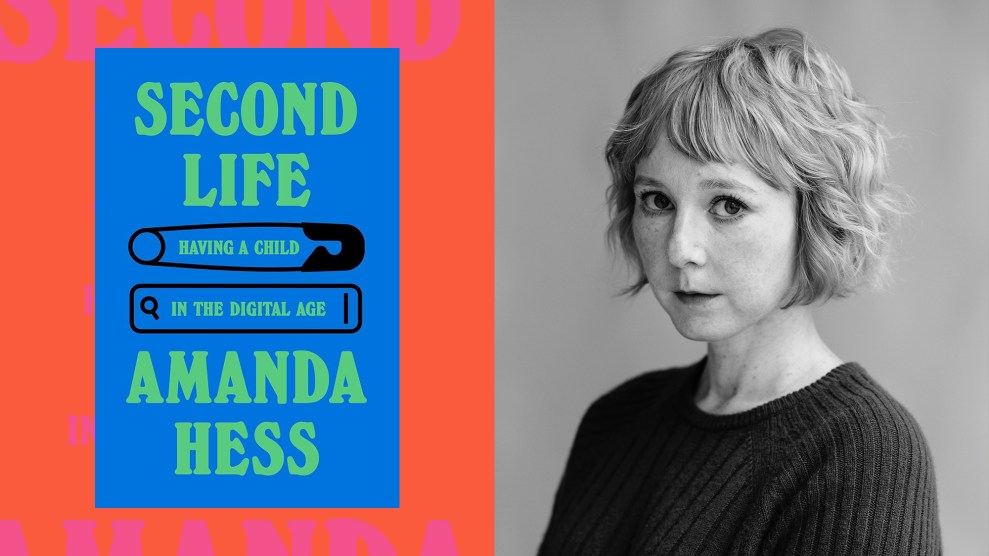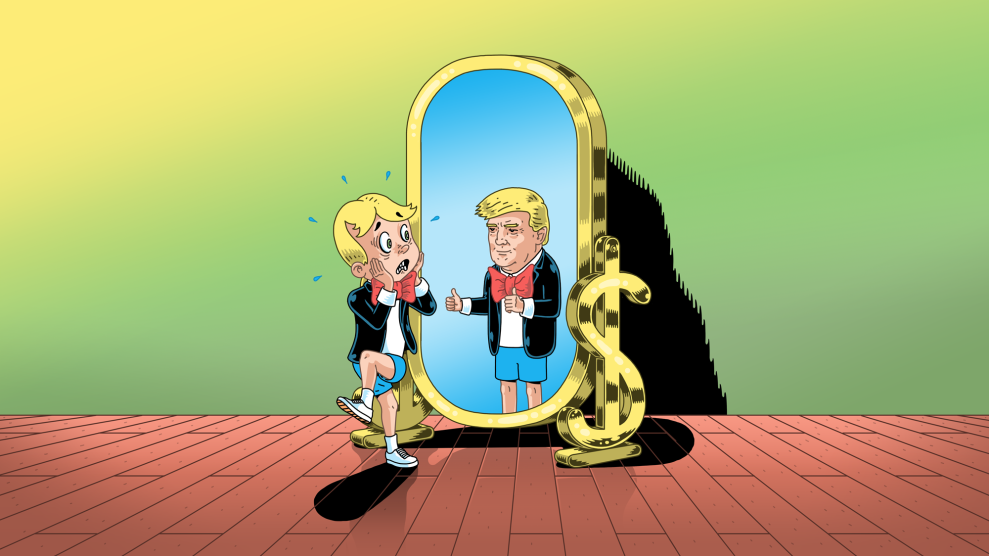In accepting the post of poet laureate of the United States two years ago, Robert Hass postponed his writing life for what he has called an “act of citizenship.” Since his appointment, he has written a weekly column on poetry syndicated by the Washington Post and has traveled around the country to urge more funding for literacy and education, and to suggest the need for deeper awareness of environmental relationships.
Hass’ tenure as poet laureate has been a more public expression of the lifelong concerns that inform his poetry: a close attention to the natural world, a sense of self developed in relation to the landscape, an acute awareness of both the pleasures and pains of being human. His books of poetry include Human Wishes, Praise, and Field Guide. In his latest collection, Sun Under Wood (Hopewell, N.J.: Ecco Press, 1996), Hass says he is writing “the poems of middle age…poems of what’s irreparable in the world, things you can’t change.”
Hass, who teaches at the University of California at Berkeley, sat for a Mother Jones interview just before the spring semester began. As his term in office wound down (it ends May 1), he was in a reflective mood, thoughtful about the condition of community in the United States, about politics, and about their relationship to the poetic imagination.
Q: What has your experience as America’s poet laureate been like?
A: When I came into the job, funding for the humanities at the federal level was being drastically cut. This was the high tide of the new Republican Congress. Environmental regulation looked like it was going to be under serious attack, and they were giving all of those speeches about getting government off people’s backs.
I was aware that a quarter of the children in the country are born in poverty, and that the condition of public schools in California was disastrous. I thought it was irrelevant to talk about what a wonderful thing poetry was if you didn’t teach people to read. You begin to see that all of these things are connected: The kind of cuts that mean less environmental protection are also the kind of cuts that mean less musical education for the schools and that also mean more overcrowded schools.
Q: How are they connected?
A: They are the kinds of things that make us a community: attachment to place, attachment to local arts traditions, the ability to read literature, the ability to look at paintings, the sense of connectedness to the land, the sense of community that comes from people taking care of their own. The market doesn’t make communities. Markets make networks of self-interested individuals, and they work as long as there’s more than enough to go around.
As poet laureate, I was asked to be a spokesman for literature. Then what I decided is I am a spokesman for this other imagination of community — not the one showing up in the market. Nobody was tending to the way we’re imaginatively connected to each other.
Q: How did that lead to your work on literacy?
A: I got interested in the question of literacy because writers are always moaning about why more people don’t read books. They long for the good old days when people read serious novels. Everybody has a different idea of when those good old days were, but everyone is convinced that there was a time when literature really mattered and that it doesn’t now. They also tend to believe that it really matters someplace else — in very improbable places often. Russia is someone’s idea of a place where literature really counts.
As I started reading about it, I saw that at the beginning of the 19th century, outside of New England — which was an unusually literate place — practically no one could read or write. And even in New England, the overall rate was only about 60 percent. That still means four out of 10 people couldn’t put their name to a will.
The ideal of universal literacy, in the West anyway, was first of all a Protestant idea — that everybody had to be able to read to save their soul. That idea got transposed into an idea of the importance of literacy for democratic citizenship. A movement got started for common schools, and by the end of the 19th century, 91 percent of Americans could read and write. It was one of the great mass achievements of American civilization, and we did it because we thought if you were going to have a democratic form of government, people had to be able to read and understand complicated ideas on their own.
So then in California we froze property taxes, school size increased, test scores declined, and there was a massive middle-class white flight to private schools. We’re turning into Victorian England at a very rapid rate. If we want to have a two-class society and an unemployed, welfare-crippled lower class that has no access to equality and educational opportunity and no access to jobs and is resentful and furiously angry, we can have it — that’s what we’ve been willing to pay for so far.
Q: You’ve also emphasized environmental connections in your work as poet laureate.
A: There isn’t a river or creek in the country — or there are very few — that doesn’t have some small group of people working on a restoration or creek cleanup project. Let me give you one example that’s a great metaphor: In Washington, D.C., there is a group called the Anacostia Watershed Society. Two rivers converge and define Washington — one which everybody knows about, the Potomac, and the Anacostia, which they don’t. The Anacostia is one of the most polluted urban rivers in the country.
It turns out — this is a metaphor out of Dickens — that the raw sewage emptied into the Anacostia comes from the Federal Triangle. I have a sewer map, and on it you can see the pipe from which congressional wastes empty into the river that then flows through the black neighborhoods of Washington, D.C. It is very expensive to do anything about the river, but somebody’s working on it.
I just kept having these “only connect” moments straight out of E.M. Forster. That is to say, if you’re imaginatively responsible to the place you live in, you understand the watershed. Once you figure out something about the watershed, you’ll find out where the schools are going to hell, and the kids aren’t learning, and there is no money. Social issues, class issues, and environmental issues were all connected.
Q: People presumably think that, as a poet laureate, you were hired to talk about poetry.
A: I am talking about poetry. It’s like that line from Yeats: I go back to “where all the ladders start/ In the foul rag and bone shop of the heart.” If you’re going to get up to Walt Whitman and Robert Frost and Langston Hughes and Sylvia Plath you’ve got to figure out how you put people in possession of their heritage. To do that you have to talk about how they’re being taught, and the imagination of community the people who are running our government have.
Q: How can poetry affect the imagination of government?
A: There are instances: Thoreau read Wordsworth, Muir read Thoreau, Teddy Roosevelt read Muir, and you got national parks. It took a century for this to happen, for artistic values to percolate down to where honoring the relation of people’s imagination to the land, or beauty, or to wild things, was issued in legislation.
Q: In your poem “English: An Ode,” from your current volume, you write, “There are those who think it’s in fairly bad taste/ to make habitual reference to social and political problems/ in poems. To these people it seems a form of melodrama/ or self-aggrandizement, which it no doubt partly is.” It seems you’re railing against certain constraints about being political in your work.
A: I thought a long time about whether to cut that from the poem. It’s myself I’m arguing with — the part of me that thinks it’s just in bad taste because, finally, you’re preaching to the converted. I suppose there’s something to be said for the sheer reinforcement of our beliefs, but really I think poetry is more useful as disenchantment than enchantment. And the record of poetry in the 20th century isn’t all that great anyway. Most of the poets who weren’t fascists were Stalinists.
The poem that comes closest to saying what I think is the one in Human Wishes called “Rusia en 1931.” This poem is about Mandelstam, who was a great poet and an anti-Stalinist, and Vallejo, who was a great poet and a Stalinist. Mandelstam was killed by Stalinist forces. Vallejo was at least metaphorically killed by fascist forces, in the sense that he wore himself out raising funds for the Republicans in the Spanish Civil War and got sick and died. Poetry, when it takes sides, when it proposes solutions, isn’t any smarter than anybody else.
But Mandelstam, who wasn’t a political thinker, loved the idea of the city-state. One of the emblems in his poetry of the politics he imagined, over and against the universalizing politics of Marx, was the medieval city of Novgorod, which had in its center a public well where the water was free to everyone. That became for him a figure of justice. So I say, “Poetry proposes no solutions: it says justice is the well water of the city of Novgorod, black and sweet,” because I think that the job of poetry, its political job, is to refresh the idea of justice, which is going dead in us all the time.
As an artist, you have the job of working out whatever is given you to work out. In Sun Under Wood, I found myself realizing that I had to write the poems of middle age, which were to me poems of what’s irreparable in the world, the ways you’ve fucked up in your own life, things you can’t change. Yet compared to the scale of injustice in the world, how do I write about this? At some level, you have to be able to say, “This is my task.” It’s in small, local ways that you keep yourself alive and refresh ideas that are always going into dead abstraction.
Q: How possible is it to be as public as you’ve been in this position and also be as private as you need to be to do your work?
A: It’s not. I really find I can’t do both.
Q: That’s a big sacrifice.
A: I guess it wasn’t, because I chose to do it. The thing I learned is that the work is getting done by people who dig in and work on a particular project: the people who spend 20 years sustaining a theater for black teenagers in Chicago; the people who reintroduce sticklebacks into Strawberry Creek in Berkeley and then wait patiently for the first egrets to show up.
It’s the same with this idea of a literate public, and also of a democracy in which people have access to and really read the best books. It turns out that even when you create this kind of environment, maybe only 10 percent of the people want to read those books. What does it mean? It means to me what Simone Weil said politics has meant all along, which means that you fight for 11 percent, 12 percent, 13 percent, that you avoid golden-age thinking and romantic melancholy and you just keep pushing.
Sarah Pollock is a contributing writer to Mother Jones.
















